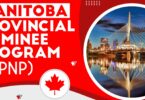Canada remains a top destination for students, skilled professionals, and immigrants from around the world—and East Africans are no exception. With a stable economy, multicultural population, and transparent immigration policies, the country offers excellent prospects for individuals from Kenya, Uganda, Tanzania, Rwanda, Burundi, and South Sudan.
Whether your goal is to earn a degree, find a rewarding job, or secure permanent residency, this guide will walk you through your options and offer practical steps toward making Canada your new home.
Studying in Canada
Why Choose Canada for Education?
Canada is globally recognized for its high academic standards, research opportunities, and multicultural campus environments. Students enjoy access to world-class education with the option to work while studying and transition to permanent residency later.
Admission Requirements
To study in Canada, students from East Africa generally need:
- A valid secondary school certificate (KCSE, UACE, etc.) or university transcript
- Proof of English proficiency (IELTS/TOEFL) or French for some institutions
- Letter of acceptance from a Designated Learning Institution (DLI)
- Statement of Purpose (SOP)
- Valid passport and study permit
Each university may have additional requirements, so check their official websites.
Popular Canadian Institutions Among East Africans
- University of Toronto: Top-ranked for medicine, law, and engineering
- University of British Columbia: Strong programs in environmental science and commerce
- McGill University: Based in Montreal, offers bilingual (English/French) learning
- University of Waterloo: Ideal for tech, IT, and engineering
- Seneca and Humber Colleges: Great options for diploma programs and applied learning
Scholarships and Funding
Canada offers several scholarships to reduce financial barriers:
- Vanier Canada Graduate Scholarships (PhDs)
- MasterCard Foundation Scholars Program (for undergraduates and masters from Sub-Saharan Africa)
- University-specific scholarships like UBC International Leader of Tomorrow and McGill’s Entrance Bursaries
Study Permit Application Process
- Get accepted into a DLI.
- Apply online via the IRCC portal.
- Submit supporting documents: acceptance letter, proof of funds (CAD 10,000+), medical exam, and biometrics.
- Pay the application fee (approx. CAD 150).
- Attend an interview if required.
Average Visa Processing Time: 4–10 weeks
Working in Canada
Sectors with Labour Shortages
Canada has an aging population and a growing need for skilled workers. The following sectors offer opportunities for East Africans:
- Healthcare: Nurses, caregivers, physiotherapists
- Tech: Software developers, cybersecurity analysts, data scientists
- Engineering: Civil, mechanical, and electrical engineers
- Skilled trades: Welders, electricians, truck drivers
- Hospitality: Chefs, hotel staff, food services
Pathways to Work in Canada
There are two main work permit types:
- Employer-specific work permit: Requires a job offer and possibly a Labour Market Impact Assessment (LMIA)
- Open work permit: For spouses of students or under programs like International Experience Canada (IEC)
How to Apply for a Work Permit
- Secure a job offer (check if LMIA is required).
- Apply online at IRCC with necessary documents.
- Pay fees and submit biometrics.
- Undergo a medical exam if applicable.
Top Job Sites and Recruiters
- Job Bank Canada: Official job board
- Indeed Canada: Search with filters for visa sponsorship
- ZipRecruiter: Popular for tech and remote jobs
- Hays Canada: Especially good for professionals and skilled trades
Companies Known to Sponsor Foreign Workers
Some companies actively hire and sponsor international talent:
- Amazon Canada
- Magna International
- Maple Leaf Foods
- SNC-Lavalin (engineering)
- Loblaw and Shoppers Drug Mart
Warning: Avoid recruiters that ask for upfront payments or make fake promises.

Immigration Pathways
Express Entry System
This is Canada’s fastest immigration route for skilled workers. It includes three categories:
- Federal Skilled Worker Program
- Federal Skilled Trades Program
- Canadian Experience Class
Applicants are scored using the Comprehensive Ranking System (CRS), which considers age, education, work experience, and language proficiency.
Provincial Nominee Programs (PNPs)
These are immigration programs run by provinces and territories:
- Ontario Immigrant Nominee Program (OINP)
- British Columbia PNP
- Alberta Advantage Immigration Program
Some PNPs target international students and workers without requiring job offers.
Step-by-Step Immigration Guide
- Take IELTS (General) and get an Educational Credential Assessment (ECA)
- Create an Express Entry profile
- Enter the pool and wait for an Invitation to Apply (ITA)
- Submit application with medical and police reports
- Get Confirmation of Permanent Residence (COPR)
Role of Immigration Consultants
If you’re confused about procedures, licensed consultants can help, but choose wisely:
- Must be licensed under CICC (formerly ICCRC)
- Avoid anyone who guarantees results or asks for large upfront fees
Financial Planning for Canada
Estimated Living Expenses (Per Year)
| Expense | Cost (CAD) |
|---|---|
| Tuition (undergrad) | 15,000 – 25,000 |
| Tuition (graduate) | 10,000 – 20,000 |
| Housing & food | 10,000 – 15,000 |
| Health insurance | 600 – 1,000 |
| Transport & personal | 2,000 – 3,000 |
| Total | 30,000–45,000 |
Money Transfer Options
- Wise (formerly TransferWise): Best exchange rates
- Remitly & WorldRemit: Fast digital transfers
- Western Union: Available in rural areas
- Equity Bank: Offers international transfer services
Student Loans & Financial Aid
- MPower Financing: For international students without collateral
- Prodigy Finance: Offers loans for postgraduate studies
- University Bursaries: Many offer need-based financial aid
Common Questions (FAQs)
1. How long does Canadian visa processing take from East Africa?
- Study permit: 6–10 weeks
- Work permit: 8–12 weeks
- PR via Express Entry: 6–9 months
2. Do I need proof of funds for Express Entry? Yes. For a single applicant, at least CAD 13,757. Add CAD 3,706 per additional family member.
3. Can I bring my family with me? Yes. You can include your spouse and dependent children in most visa categories.
4. What IELTS score is required for immigration?
- Minimum CLB 7 (IELTS 6.0 in each section) for Federal Skilled Worker
5. Can I work while studying? Yes. You can work up to 20 hours/week during semesters and full-time during breaks.
Myths vs Facts
- Myth: Only wealthy people can move to Canada
- Fact: Many immigrants arrive through scholarships or affordable programs
- Myth: You need a job offer to immigrate
- Fact: Express Entry and several PNPs don’t require job offers
- Myth: Canada doesn’t accept foreign credentials
- Fact: ECAs validate most foreign degrees
- Research Canadian universities and identify DLIs that match your career goals
- Start IELTS prep early using free or paid online platforms
- Save for visa fees, tuition, and proof of funds
- Monitor Express Entry draws or PNP announcements on official channels
- Join Facebook groups or Reddit forums for East Africans in Canada
Canada offers an incredible mix of opportunity and stability for East Africans looking to study, work, or immigrate. With transparent immigration policies, a high quality of life, and room for growth, the Great White North continues to welcome individuals who bring value and diversity.
If you’re ready to explore your Canadian journey, start small. Look up schools, connect with students already abroad, and slowly gather documents. Remember, it’s not about rushing—it’s about planning smart.
Search for Canada migration opportunities below






Leave a Comment